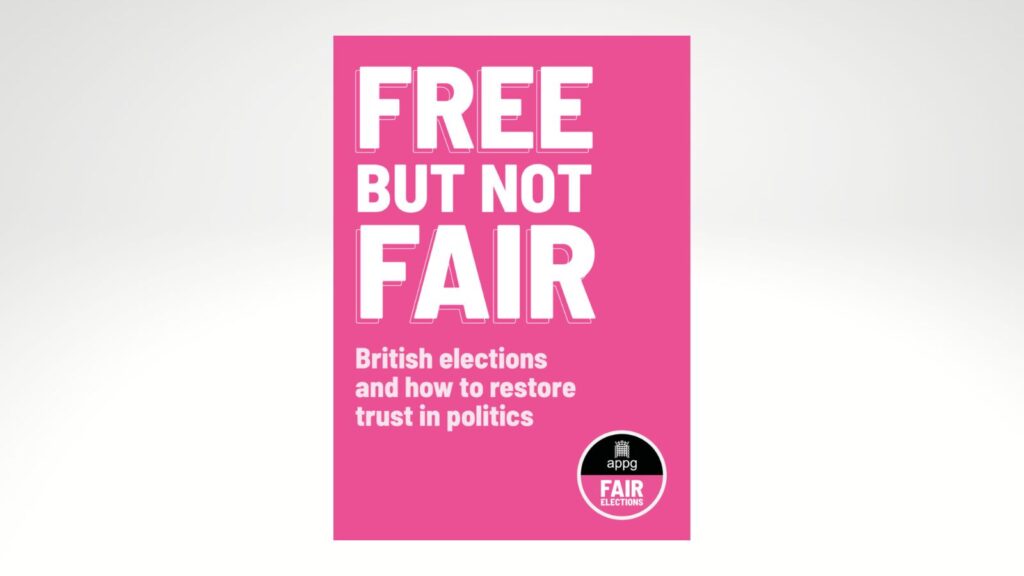
Free But Not Fair
The All Party Parliamentary Group (APPG) for Fair Elections is delighted to publish its new report: Free But Not Fair: British elections and how to restore trust in politics.
The APPG for Fair Elections has identified three threats to the fairness of our democratic process which are having a hugely damaging impact on trust in British politics.
They each reflect the same underlying problem: they afford some people in Britain far greater say over our democracy than others. Addressing these three threats is part of the urgent challenge to restore public trust:
- First Past the Post: The Westminster voting system has produced the most distorted general election result in history, denying the majority of British voters a real say in both who represents them in Parliament and who governs the country. While the unfairness of the 2024 general election is particularly stark, it is just the most recent example of a voting system in decline.
- Dark money and hidden influence: Campaign finance is increasingly opaque, with significant loopholes in donation and lobbying rules allowing unaccountable actors to exert influence. Meanwhile, a weakened Electoral Commission lacks the powers to enforce regulations. This system amplifies the influence of wealth, while muting the voices of ordinary citizens.
- Disinformation: The regulation of Britain’s legacy media is outdated and fails to ensure a fair and independent press. The rapid growth of new media platforms has further highlighted the inadequacy of existing media regulations, with pervasive implications for our democracy.
The report sets out the crisis of trust in politics, before explore how each of these threats negatively impacts voters, elections, and public perceptions of British politics.
It outline three key recommendations for government; initial steps that could be implemented swiftly to begin to address these issues:
- Establish a National Commission on Electoral Reform: starting from the broad consensus that First Past the Post is flawed and damaging trust in politics, the Commission would allow citizens’, alongside experts, to recommend a fair and democratic voting system in which every vote counts. It should start work in 2025.
- Close donation loopholes and strengthen the Electoral Commission: the first reforms to campaign finance rules since 2000, these simple changes would prevent individuals or groups from bypassing permissibility and transparency rules and would reinstate the Electoral Commission’s independence and authority to enforce regulations.
- Require transparency in handling of ‘legal but harmful’ content: require new and social media platforms to publish risk assessments for ‘legal but harmful’ content, in the same way that they are currently obliged to do so for illegal content.
